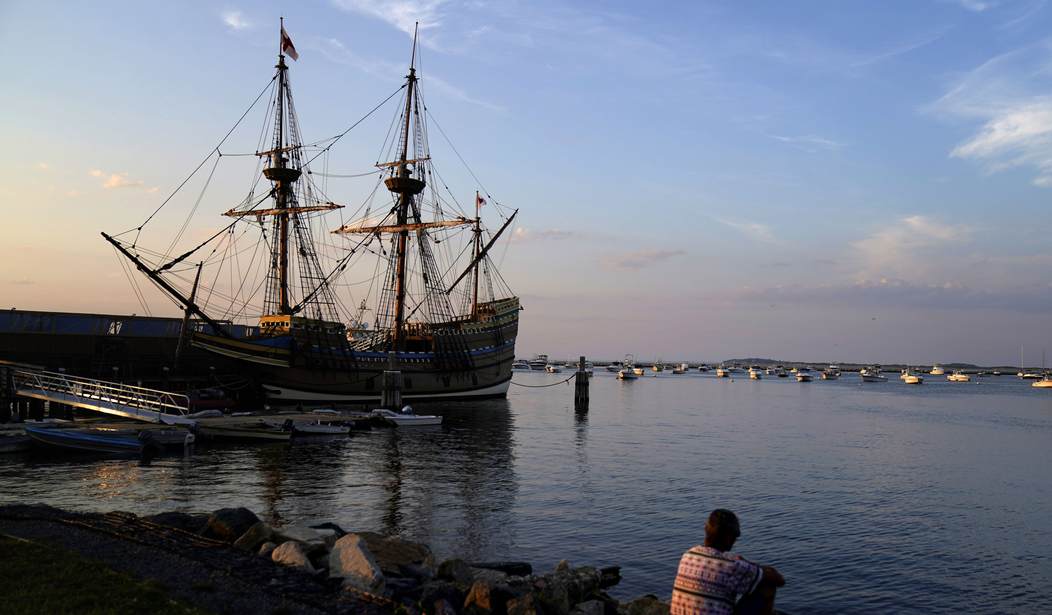Gratitude is said to be one of humanity’s oldest forms of wisdom—simple enough to express in a moment, yet powerful enough to shift the course of a life. Gratitude is more than polite gestures or seasonal rituals; it is a way of seeing the world and living life. Few moments in history illustrate this more clearly than the story of the Pilgrims and the origins of Thanksgiving.
When the Pilgrims set sail on the Mayflower in 1620, they carried within themselves much hope and little certainty. These men and women crossed the Atlantic not in pursuit of comfort or abundance, but in search of a place where they could practice their Christian faith freely. Their voyage was perilous; their first winter devastating.
They arrived in harsh New England, faced bitter cold, disease, and hardships beyond anything for which they had prepared. Nearly half of the Pilgrims did not survive that first winter.
But when spring arrived, so did help. The Wampanoag people shared knowledge that would help keep the Pilgrims alive: Knowledge about farming, fishing, and how to endure in this new land. With that support and their own steadfast determination, the Pilgrims harvested their first successful crop in the fall of 1621. In a posture of heartfelt gratitude to God, they gathered for what is now remembered as the first Thanksgiving: a three-day feast shared with their Native American neighbors.
The Pilgrims knew that even in days shadowed by struggle, there were still blessings worthy of thanks. The Pilgrims understood something that we should be mindful of today: gratitude does not wait for perfect circumstances. God's providence and provision bless our lives even in life’s imperfect places. The Pilgrims were very intentional about acknowledging God’s blessings and thanking Him for them.
Recommended
Famed writer/philosopher Thomas Paine (1737-1809) famously observed, “That which we obtain too easily we esteem too lightly.” The Pilgrims knew this well. Their gratitude was very much informed by the cost of what they had gained—their survival, personal liberty, religious freedom, and a new beginning in this ‘new world.’ They had paid dearly for each, and so they cherished each. They attached value to life and the circumstances of their survival; They were grateful to God and were mindful of what it had cost to come to this point in their lives.
In modern life, we may not face the same trials, but we are no less in need of gratitude. In a world driven by speed, stimulation, and the constant pressure to do more, gratitude acts as a grounding force. It invites us to pause. To notice. To humbly appreciate. To acknowledge quiet blessings we might otherwise overlook: a shared meal, a supportive friend, a moment of peace, the chance to try again after failing.
Gratitude doesn’t erase hardship, nor does it require us to pretend everything is perfect. But it can reframe our attention. It turns our gaze from what we think is missing to an appreciation of what we have. A grateful spirit sees beyond what is broken to what still works, from what we worry over to all we have to celebrate. This shift can be transformative: it strengthens resilience, deepens relationships, and renews our sense of meaning.
The Pilgrims celebrated their first Thanksgiving not because life was easy, but because they recognized the miracle of still being alive. Their gratitude was a testament to God’s help amidst personal endurance.
In our own lives, gratitude serves a similar purpose. It reminds us that even in difficult times, there is always something—some small spark— that can anchor us. A lesson learned. A kindness offered. A bit of progress. A moment of beauty. Gratitude widens our awareness just enough to let light in.
As Americans reflect on Thanksgiving 2025, we would do well to prayerfully cultivate in ourselves the spirit of that early gathering: a posture of humility, appreciation, and connection. Gratitude can forge new friendships, open new doors, heal old wounds, nurture and mature us. All of our successes have been (at least to some degree) touched by other’s efforts on our behalf. The Pilgrims gathering reminds us that sharing— food, support, compassion— is one of the oldest and truest forms of celebration.
The Pilgrims gathered at their first Thanksgiving not because life was perfect, but because they recognized God’s faithfulness even in hard times. Their Christian faith led them to pause, reflect, and give thanks.
In intentionally cultivating a mindset of gratitude, we are doing what the Bible, in I Thessalonians 5:18, says is part of God’s will for our lives. Gratitude is not merely a holiday.
It is a practice. A perspective. Thankfulness is a way of living with open eyes and an open heart.
Dr. Alex McFarland is an apologetics evangelist who has spoken in hundreds of locations throughout the U.S. and internationally. He is heard live on “Exploring the Word,” airing daily on 200+ radio stations across the country. “The Alex McFarland Show” airs weekly on NRBTV, providing Biblically faithful TV and discussion on current events affecting our nation. His newest book, “100 Bible Questions and Answers on Prophecy and the End Times,” is available now.
Editor’s Note: Do you enjoy Townhall’s conservative reporting that takes on the radical left and woke media? Support our work so that we can continue to bring you the truth.
Join Townhall VIP and use the promo code FIGHT to get 60% off your VIP membership!

























Join the conversation as a VIP Member